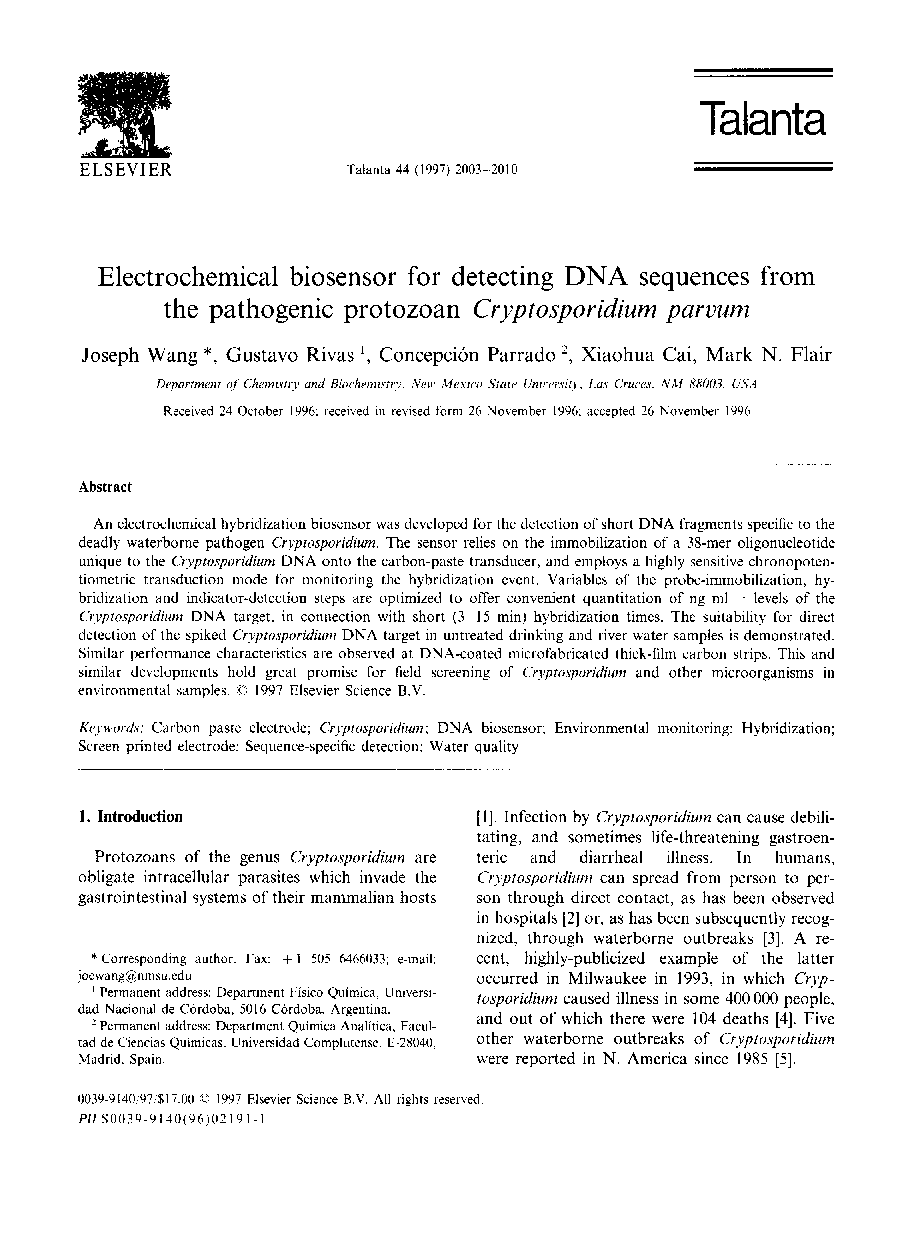| Article ID | Journal | Published Year | Pages | File Type |
|---|---|---|---|---|
| 1247470 | Talanta | 2010 | 8 Pages |
An electrochemical hybridization biosensor was developed for the detection of short DNA fragments specific to the deadly waterborne pathogen Cryptosporidium. The sensor relies on the immobilization of a 38-mer oligonucleotide unique to the Cryptosporidium DNA onto the carbon-paste transducer, and employs a highly sensitive chronopotentiometric transduction mode for monitoring the hybridization event. Variables of the probe-immobilization, hybridization and indicator-detection steps are optimized to offer convenient quantitation of ng ml−1 levels of the Cryptosporidium DNA target, in connection with short (3–15 min) hybridization times. The suitability for direct detection of the spiked Cryptosporidium DNA target in untreated drinking and river water samples is demonstrated. Similar performance characteristics are observed at DNA-coated microfabricated thick-film carbon strips. This and similar developments hold great promise for field screening of Cryptosporidium and other microorganisms in environmental samples.
